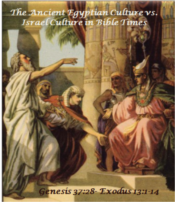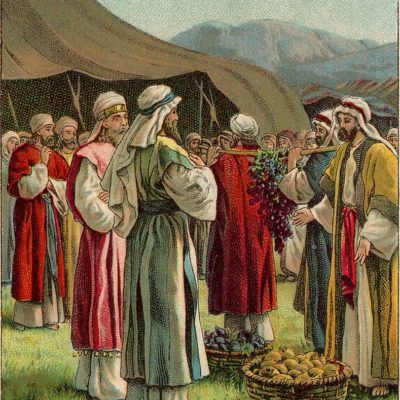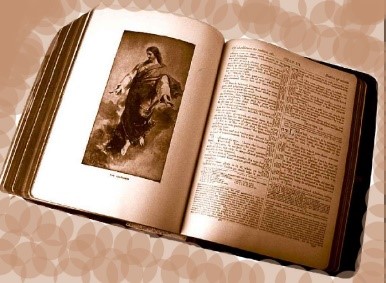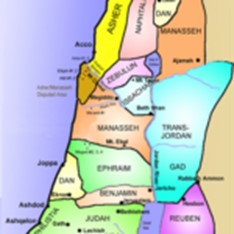The Ancient Egyptian Culture vs Israel Culture in Bible Times

This look at the ancient Egyptian culture and Israel culture are seen through the eyes of Joseph and Moses who had both fled from the Egyptian. The story of Joseph and Moses sheds light on the treatment of slaves, interpretation of dreams, Egyptian buried their dead by embalming, child birth and education.
Genesis 37:28- Exodus 13:1-14
The sophistication and influence of the Egyptians was admired throughout the ancient world. The Israelites led by Moses and Joseph fled from the attractive tempting Egyptian women. Both in the Egyptian and Israelite culture slave girls were routinely and repeatedly used sexually by her master. (Exodus 21:9-11). Slay boys were also used sexually. It was forbidden by the moral code of the Israelites to have sex with boys.
The story of Joseph being sold into slavery by his brothers explains how the Israelites were found in Egypt. Joseph was sold to a caravan of Ishmaelite that was bound for Egypt. The Ishmeelites came from Gilead with their camels bearing spicery and balm and myrrh, going to carry it down to Egypt. Gilead was a mountainous region bounded on the west by the Jordan, on the north by Bashan, on the east by the Arabian plateau, and on the south by Moab and Ammon; sometimes called ‘Mount Gilead’ or the ‘land of Gilead’. (#01568 Strong’s, 2001).
The odyssey of Joseph began with his being sold into slavery to Potiphar who was an officer of Pharaoh, captain of the guard, and an Egyptian. Potiphar took A Joseph into his home as a house slave. Potiphar was fond of Joseph and pleased with his work and made him overseer of his house and put everything he had in the hand of Joseph. The LORD God was upon all that Joseph did and blessed the house and the fields. (Genesis 39:4-6).
The wife of Potiphar became infatuated with Joseph and told him to lie with her. This demanding for sex went on day after day and day after day Joseph refused to sleep with her. First stating it was against the LORD God and would be considered a sin. Second it would hurt the trust her husband had in him. Then one day he came into the house to do his work when there were no other household servants around. The wife of Potiphar demanded Joseph to sleep with her and grabbed him by his cloak. Joseph ran out of the house and left his coat in her hand. The wife of Potiphar yelled rape and showed the coat he had left behind. She told her husband that it was the Hebrew slave, the one he brought to the house, that Joseph came after her and tried to have sex with her. It was only because he yelled and screamed, when he left his coat and ran outside. (Genesis 39:7-18).
Joseph went to prison in the king’s prison. The LORD God was still with Joseph and showed him mercy, and gave him favor in the sight of the keeper of the prison. The keeper of the prison committed to Joseph’s hand all the prisoners that were in the prison; and whatsoever they did there, he was the doer of it. The keeper of the prison did not pay any attention to whatever was under Joseph. The LORD was with Joseph, and that which he did, the LORD made it to prosper. (Genesis 39:19-23).
The Egyptian slaves were generally ill-treated. The overseer was often seen as a steward who took account and made a registry of the harvest before it was deposited in the storehouse. It was Potiphar who committed Joseph to the custody of keeper of the prison. (Groves, 1861, pp. 354-357).
Joseph was sold into slavery by his brothers for twenty pieces of silver. (Genesis 37:28). The price of slaves varied widely. There was a scale of from three to fifty shekels is given in Leviticus 27:3–7, according to the age and sex of the slave. An appeal could be made to a priest when there was disagreement on price. The period of times, intertestamental period, the average price for a slave was forty shekels (2 Macc. 8:11). A ransom of one talent for a captive (1 Kings 20:39) must indicate that he was an individual of great importance. Children were sold into slavery under terms of a conditional contract. More frequently this was true of young, unmarried girls. (Silva, 2011p. 69).
Joseph was in prison with the cupbearer and the baker of the king of Egypt. The Pharaoh was furious with these tow officials and put them in custody under the captain of the guard. They both had dreams on the same night, each dream having its own meaning. Joseph told them that it was the LORD who interprets dreams. The head cupbearer told his dream to Joseph who interpreted the dream with the help of the LORD. The three branches were three days. Within three days, Pharaoh will get him out of prison and put him back to his old work. The cupbearer was told to not forget Joseph before Pharaoh. (Genesis 40: 1–15).
When the head baker heard the interpretation and how it turned out he told his dream to Joseph. The mean of his dreams was that the three baskets are three days; within three days Pharaoh would take off the bakers head, impale it on a post, and the birds would pick his bones clean. Three days later was Pharaoh’s birthday and he threw a feast for all his servants. The Pharaoh set the head cupbearer and the head baker in places of honor in the presence of all the guests. Then he restored the head cupbearer to his original post. Then Pharaoh impaled the head baker on a post, this followed the interpretations Joseph precisely. (Genesis 40: 16–23).
Interpretation of dreams is a form of divination in the ancient world. Dream interpretation itself was a creative endeavor for influencing future events. Nevertheless, the existence of manuals for dream interpretation suggests that there were limits to the interpreter’s verbal manipulations. The creative aspect of dream interpretation provided the interpreter with a degree of social and political influence. An unfavorable interpretation may arouse the anger of the dreamer. If the dreamer were the king or some other powerful person, an unfavorable interpretation might earn the interpreter execution, imprisonment, or some other punishment. (Roberts. 2012).
Dreams were important in the Old Testament. Israel culture is represented by Joseph where he told the prisoners that interpretations belong to God. A better way to say this is that only the LORD God can enable a person to interpret dreams and give its meaning. (Reyburn. 1998. P. 906). Israel was forbidden to use many of the divining practices. The LORD God did reveal something through a dream as a form of communication. . When we recognize that night visions and dreams were not strictly distinguished, we can find many more times in the Old Testament and New Testament that the LORD God used this method to communicate. (Dean. 2003.p.442).
Prophecy and the dreaming of dreams were to be tested in the same way according to Deuteronomy 13. If a prophet, or a dreamer of dreams give signs or a wonder, and the sign or the wonder come to pass and then says to go after other gods, which are not known and serve them. You shall not hear the words of that prophet, or that dreamer of dreams. The LORD God proves us, to know whether you love the LORD your God with all your heart and with all your soul. You shall walk after the LORD your God, and fear him, and keep his commandments, and obey his voice, and you shall serve him, and cleave unto him. That prophet, or that dreamer of dreams, shall be put to death; because he has spoken to turn you away from the LORD your God, which brought you out of the land of Egypt, and redeemed you out of the way you to walk in. So shall you put the evil away from the midst of you. (Deuteronomy 13:1-13).
It was two years later when Pharaoh had two dreams that upset him. He sent for all the magicians and sages of Egypt. Pharaoh told them his dreams, but they couldn’t interpret them to him. It was only then that the head cupbearer remembered Joseph. Pharaoh at once sent for Joseph. Joseph interpreted the two dreams according to the LORD saying that the two dreams both mean the same thing. The LORD was telling Pharaoh there would be seven years of good harvest and seven years of famine throughout Egypt. Pharaoh needs to look for a wise and experienced man and put him in charge of the country. The Pharaoh needed to appoint a wise and experienced man in charge of the whole country and managers throughout the country of Egypt to organize it during the years of plenty. Their job will be to collect all the food produced in the good years ahead and stockpile the grain under Pharaoh’s authority, storing it in the towns for food. This grain will be held back to be used later during the seven years of famine that are coming on Egypt. This way the country would not be devastated by the famine.
Joseph as the “Royal seal-bearer” (Gen 41:42). The ring that Pharaoh gave to Joseph was his official scarab ring bearing the personal seal of the king. The possessor of the royal seal, in ancient Egypt, was permitted to make certain decisions of national importance without making reference to the king’s direct command. Joseph was in charge of the entire country of Egypt. He was thirty years old when he went to work for Pharaoh the king of Egypt. Pharaoh removed his signet ring from his finger and slipped it on Joseph’s hand. He outfitted him in robes of the best linen and put a gold chain around his neck. Pharaoh put Joseph as the second-in-command and chariot at his disposal. (Genesis 41:1-57).
It was because of his position and the famine that Joseph was able to be reunited with his whole family. The family of Joseph was given land in Goshen with its ideal pastureland. The families of Jacob were shepherds and this was valued land for them. The Egyptians believed that they would be defiled if they ate with the Hebrews, who were shepherds, for shepherds were detested by the Egyptians. Joseph advised his brothers and household of his father household: “And it shall come to pass, when Pharaoh shall call you, and shall say, what is your occupation? That ye shall say, Thy servants’ trade hath been about cattle from our youth even until now, both we, and also our fathers: that ye may dwell in the land of Goshen; for every shepherd is an abomination unto the Egyptians.” (Genesis 46:33-34).
The Egyptians were farmers and resented the shepherds who allowed their land to be destroyed. The Egyptians also detested the Hebrews nomadic ways. They considered the lawless ways of wandering shepherds who had no fixed home and moved from place to place with each change of the season in search of food, water, and grazing land. (Freeman. 1998. P.84).
Joseph skillfully used this Egyptians disgust for shepherds to provide his family an area where they and their flocks could flourish and his father, Jacob or Israel, along with his people could preserve their cultural and spiritual uniqueness. Goshen was a pastoral region of ancient Egypt on the eastern delta of the Nile River, where rich black soil had been deposited by the river. There the family of Joseph could be isolated from most of the Egyptians, and had little daily contact with them. . (Freeman. 1998. P.85).
Jacob, Israel, dwelt in the land of Egypt, in the country of Goshen; and they had possessions therein, and grew, and multiplied exceedingly. Joseph and his family lived in the land of Egypt seventeen years. His father Jacob, Israel, was hundred forty and seven years. It came time when Israel would die and he called Joseph and begged him not to bury him in Egypt. He wanted to lie with his fathers and wanted Joseph to carry him out of Egypt and bury him in their burying place ground at Hebron. (Genesis 47:27–31).
Joseph fell upon his father’s face, and wept upon him and kissed him when he passed away. Joseph commanded his servants the physicians to embalm his father: and the physicians embalmed Israel. (Genesis 50:7-9).The forty days were fulfilled for him; for so are fulfilled the days of those which are embalmed: and the Egyptians mourned for him threescore and ten days or seventy days. (# 07657 Strong’s, 2001).
The Egyptian buried their dead by embalming to prevent the bodies from decaying. Among the Egyptians the desire was to preserve the body from decay, and the belief was that this method would insure the continued identity of the deceased in the afterworld. The Children of Israel acknowledged no need for physical preservation; they believed that the LORD God would extend his presence and care to the grave and would one day resurrect the body. This practice was not acceptable by the Hebrews and only Joseph and his father is mentioned in the Bible as being embalmed. (Myers, 1987, 333). So Joseph died, being an hundred and ten years old: and they embalmed him, and he was put in a coffin in Egypt. (Genesis 50:26).
It was after the death of Joseph that the plight and the lives of the Children of Israel in Goshen took a turn for the worse and they experienced the sting of persecution. Four hundred years passed between the time the sons of Jacob entered Egypt until the great miracle when the LORD God deliverance of His people. (Exodus 12:40; Genesis 15:13). There arose up a new king over Egypt, who did not know Joseph. He was afraid that the children of Israel were more and mightier than the Egyptians and they would become more powerful and then fight against the Egyptians. The new king of Egypt put taskmasters over them to afflict them with burdens. The children of Israel became slaves of the Pharaoh. They built for Pharaoh Treasure cities, Pithom and Raamses. The children of Israel were treated harshly by the Egyptians. Then the Pharaoh spoke to the Hebrew midwives and instructed them to kill the male babies and allow the female babies to live. Because the midwives feared the LORD God they did not do as the king had commanded. They told Pharaoh that because the Hebrew women are not as the Egyptian women; for they are vigorous, and are delivered before the midwives come in unto them. Pharaoh then charged all his people saying that every son that was born shall be cast into the river and every daughter shall live. (Exodus 1:8-22).
Like the Hebrew women the Egyptian women often crouched in childbirth upon a pair of bricks or stones. The midwife helped take the new-born baby, cut its umbilical cord, washing the baby with water, salting and wrapping it. (Ezekiel 16:4). The Egyptian Papyrus Westcar, written in the Hyksos period (c. 1700/1600 BC), records how three goddesses delivered a priest’s wife of three sons: each took one child in her arms; they cut the umbilical cord, washed the children and put them on a cloth on a little brick bench, then went to announce the births to the waiting husband. (Kitchen, 1996. P. 764).
Moses was born during this time to a man of the house of Levi, and his mother was a daughter of Levi. When Moses could no longer be hide he was placed in a bulrushes daubed with slime and pitch and put in the river. The sister of Moses followed out of sight until Moses was rescued by the daughter of Pharaoh. She allowed Moses own mother to nurse the baby until he was grown and then was brought back to the daughter of Pharaoh. Moses grew and was trained like all Egyptian children. Then one day Moses saw an Egyptian smiting a Hebrew when the Egyptian would not stop hitting the Hebrew Moses slew him and hid him in the sand. Now when Pharaoh heard this thing, he sought to slay Moses. But Moses fled from the face of Pharaoh, and dwelt in the land of Midian: and he sat down by a well. (Exodus 2:1–15).
Egyptian education, available almost exclusively to upper-class boys, was designed to provide trained personnel for the priesthood, government offices, or the professions. Reading, writing, and arithmetic were the standard fare. Good handwriting and the ability to compose letters were essential for all leaders in society. Knowledge of arithmetic was especially important for workers in government offices where taxes were collected in kind. (Elwell. 1998. P.672).
The LORD God called Moses to rescue His people out of Egypt. Moses was given careful instructions how this great Exodus was going to take place. The LORD God sent Moses to the Pharaoh so he could bring the children of Israel out of Egypt. Moses was to tell the children of Israel that the Great I AM THAT I AM has sent him. Moses would lead them to a land flowing with milk and honey. The LORD God will give this people favor in the sight of the Egyptians: and it shall come to pass, that, when they go, they shall not go empty: But every woman shall borrow of her neighbor, and of her that sojourned in her house, jewels of silver, and jewels of gold, and raiment: and they shall put them upon their sons, and upon their daughters; and they shall spoil the Egyptians. (Exodus 3:11–22).
The LORD God produced plagues against Pharaoh and the Egyptians to prove to the Pharaoh that He was the LORD God.
- Water, which turned to blood and killed all fish and other aquatic life (Exodus 7:14–25)
- Frogs (Exodus 8:1–8:15)
- Lice (Exodus 8:16–19)
- Flies or [5] wild animals (Exodus 8:20–30)
- Disease on livestock (Exodus 9:1–7)
- Incurable boils (Exodus 9:8–12)
- Hail and thunder (Exodus 9:13–35)
- Locusts (Exodus 10:1–20)
- Darkness (Exodus 10:21–29)
- Death of the first-born of all Egyptian humans and animals. To be saved, the Israelites had to place the blood of a lamb on the front door of their houses. (Exodus 11, Exodus 12).
Equally all of Egyptian life was bound up with religious factors. The “gift of the Nile,” Egypt worshiped the great river as Hapi. The sun, which gave life to all things, was deified under such names as Amon-Re and Aton. The king was the offspring of the gods and was in some sense god incarnate. Thus it is obvious that the 10 plagues the LORD God brought down by Moses were an attack on the gods of the Egyptians. Turning the Nile into blood, bringing intense darkness on the land, and smiting the firstborn of the divine pharaoh involved a discrediting of Egyptian gods, as did the other plagues in various ways. (Elwell. 1998. P.673).
The pharaoh was an absolute monarch power not only over the armies, justice system but also the high priest of all religion. Moses brought the LORD God into the life of Pharaoh and the LORD God proved He was the LORD GOD. The Israelites left Egypt with their body, soul, families all their possessions and given an opportunity to have annual celebration, Passover, as a reminder of the Power and Glory and Love given by the LORD God. The LORD demonstrated that He is the sovereign LORD over all the kings and nations. The gods of Egypt were silenced and the LORD brought His people out of Egypt and out of the bondage of slavery according to His promises. (Exodus 13:14).
We are blessed we serve such an awesome LORD God. Amen
Reference:
Dean, Albert F. (2003). “Dreams” In , in Holman Illustrated Bible Dictionary, ed. Chad Brand, Charles Draper, Archie England et al. Nashville, TN: Holman Bible Publishers
Elwell, Walter A. and Beitzel, Barry J. (1988). Baker Encyclopedia of the Bible. Grand Rapids, MI: Baker Book House
Freeman James M. and Chadwick, Harold J.,(1998). Manners & Customs of the Bible. North Brunswick, NJ: Bridge-Logos Publishers.
Groves, Henry Charles.(1861). A Commentary on the Book of Genesis.(Cambridge: Macmillan and Co.
Kitchen, K. A. (1996). “Midwife” In , in New Bible Dictionary, ed. D. R. W. Wood, I. H. Marshall, A. R. Millard et al., 3rd ed. Leicester, England; Downers Grove, IL: InterVarsity Press
Myers, Allen C.(1987). The Eerdmans Bible Dictionary. Grand Rapids, MI: Eerdmans
Reyburn, William David and Fry, Euan McG. (1998). A Handbook on Genesis, UBS Handbook Series. New York: United Bible Societies.
Roberts, Ronald D. (2012). “Dream” in The Lexham Bible Dictionary, ed. John D. Barry and Lazarus Wentz. Bellingham, WA: Logos Bible Software.
Silva, Moisés. (2011). The Essential Companion to Life in Bible Times, Essential Bible Companion Series. Grand Rapids, MI: Zondervan.
Strong’s, James. (2001). The New Strong’s Expanded Exhaustive Concordance of the Bible. Nashville: Thomas Nelson Publishers.
Cite Article Source
MLA Style Citation:
Holstein, Joanne “The Ancient Egyptian Culture vs Israel Culture in Bible Times:.” Becker Bible Studies Library Apr 2015.<https://guidedbiblestudies.com/?p=2547,>.
APA Style Citation:
Holstein, Joanne (2015, April) “The Ancient Egyptian Culture vs Israel Culture in Bible Times:.” Becker Bible Studies Library. Retrieved from https://guidedbiblestudies.com/?p=2547,.
Chicago Style Citation:
Holstein, Joanne (2015) “The Ancient Egyptian Culture vs Israel Culture in Bible Times:.” Becker Bible Studies Library (April), https://guidedbiblestudies.com/?p=2547, (accessed).


